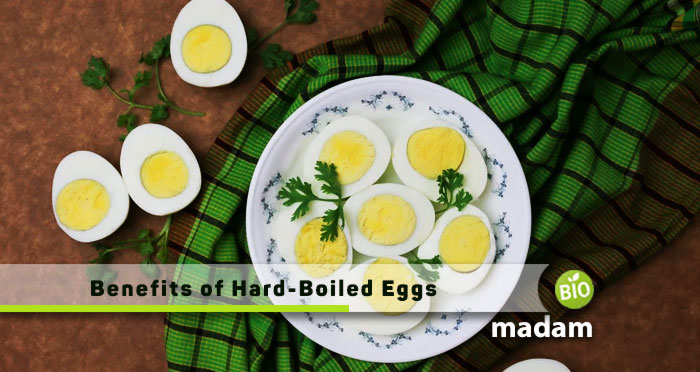Recently updated on October 5th, 2023 at 11:02 am
It’s true that eggs are packed with micro and macronutrients, but how much of a health boost you’ll get is dependent on how you cook them. Even though there are countless ways to eat boiled eggs, their health advantages are undeniable.
The only distinction between both soft-boiled & hard-boiled eggs to prepare is the time they spend in the oven. Eggs, irrespective of how long they’ve been in the water, are rich in nutrients, but those cooked for a more extended period of time are more protected against germs including yeast and bacteria.
Is Eating Eggs Healthy?
Yes. Eggs can help you satisfy your daily dietary needs.
Protein-rich eggs include 13 vital vitamins and minerals in addition to omega-3 and antioxidant-rich fatty acids. 60% of eggs’ high-quality protein is located in the white; the yolk is home to the remaining 40% and a host of essential nutrients and antioxidants such as healthy fats, vitamins, and minerals.
Benefits of Hard-Boiled Eggs
Eggs have been shown to provide many health benefits, here are some of the benefits of hard-boiled eggs.
Health Benefits
They’re delicious, filling, and healthy for your health, regardless of your age. Hard-boiled eggs provide a variety of health advantages, some of which are listed here.
Loss of Weight
Lean protein may be found in abundance in hard-boiled eggs. They’ll make you feel full without consuming too many calories to aid with weight loss.

Nutrition
Nutrients in each serving
- A serving of one big, hard-boiled egg has 78 calories.
- 5 grams of fat total.
- 2 grams of saturated fat.
- There is 187 mg of cholesterol in one gram of blood.
- Sodium: 62 milligrams
- Carbohydrates: 1 gram. Read difference of Protein and Carbohydrates here
- 1 gram of sugar
- 6 grams of protein per serving.
Calcium, iron, and vitamin A may all be found in hard-boiled eggs.
Strong Bones During Pregnancy
In conjunction with vitamin D, the proteins in hard-boiled eggs aid in the growth of the fetus. These nutrients help your baby’s teeth, bones, and overall development during your pregnancy.
Lower LDL (bad) Cholesterol Levels
The whites of boiled eggs are better for you than the yolks. To have a low-cholesterol snack, remove the yolks from the cooked eggs.
Egg Yolk
It is important to have enough choline, which is found in egg yolks, in order to keep your brain in peak condition. Antioxidants lutein and zeaxanthin, found in certain foods, help keep the eyes healthy.
Get Choline
Hard-boiled eggs are the most common food in the US that contains Choline, a crucial nutrient for cellular health and growth.
Prevent the Degeneration of the Macula
The antioxidant and anti-inflammatory characteristics of lutein and zeaxanthin, which are contained in boiled eggs, help keep your eyes healthy.
Increased Mental Stamina

With their protein and choline content, hard-boiled eggs are a great way to jumpstart your metabolism and your brain right after breakfast.
Keep an Eye Out of These Things
- LDL cholesterol levels can be raised by eating eggs since they are a resource of saturated fats. The great news is that you can cook your eggs in various healthy and unhealthy ways. Eggs that are fried have higher saturated fat content than boiled ones.
- To get the most nutrients out of your diet, eat hard-boiled eggs.
- You can get enough high-quality protein from them, as well as a variety of other minerals and antioxidants, including choline, lutein, and zeaxanthin, as well as B vitamins and zinc.
- Despite their high cholesterol content, eggs do not appear to raise the risk of heart disease in the vast majority of people.
- Because they’re not fried, hard-boiled eggs have fewer fat carbs and calories than their fried counterparts..
- They’re one of the simplest and healthiest foods you can prepare and store in fridge and include in your diet.

Jeannie has achieved her Master’s degree in science and technology and is further pursuing a Ph.D. She desires to provide you the validated knowledge about science, technology, and the environment through writing articles.

